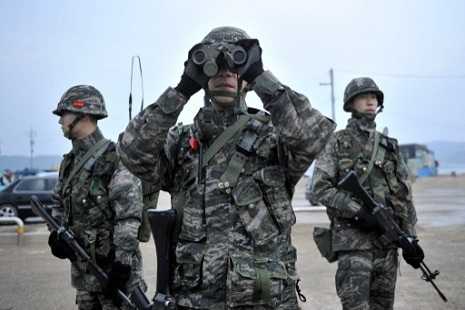
US Secretary of State John Kerry insisted yesterday that dialogue over North Korea’s nuclear threat was still possible despite an apparent rejection of talks by Pyongyang.
With Kerry’s visit to the region due to end today amid few signs of progress, he told reporters in Tokyo – his last stop in the region – that North Korea would be required to show it was serious about nuclear disarmament before dialogue could begin.
“What we really ought to be talking about is the possibility of peace. And I think there are those possibilities,” Kerry said at a news conference in Tokyo yesterday, standing alongside Japanese Foreign Minister Fumio Kishida.
In Seoul on Friday, Kerry said the US and South Korea would be keen to restart six-party talks with North Korea or to engage in bilateral dialogues, similar suggestions made the previous day by South Korean President Park Geun-hye.
But yesterday, North Korea appeared to dismiss the prospect of a return to the negotiating table as it called the proposal a “crafty trick” in a news bulletin.
The Committee for the Peaceful Reunification of Korea, the main dialogue body with the South, was cited as saying that it would not talk unless Seoul ended its confrontational posture.
“It will depend on the South Korean authorities’ attitude whether there will be dialogue in the future,” read the statement.
The US and South Korea have recently appeared to try to reduce tensions. The US has postponed an intercontinental missile test and on Saturday Kerry indicated a willingness to withdraw some recently deployed anti-missile defenses in South Korea if China could persuade the North to end its nuclear weapons program.
On April 8, North Korea withdrew its workers from the joint North-South Kaesong Industrial Complex just north of the Demilitarized Zone as the war of words escalated.
Lee Jang-hi, professor of international law at Seoul’s Hankuk University of Foreign Studies, said that North Korea might demand wage increases for its workers at the complex before “accepting the suggestion for talks.”
North Korea has used Kaesong as a bargaining chip in the past and the site is often seen as a barometer of tensions between the two Koreas.
North Korea receives the salaries from the many South Korean companies operating in Kaesong before redistributing this income – after taking a cut – to the workers, making the site a major source of foreign currency for the regime.


